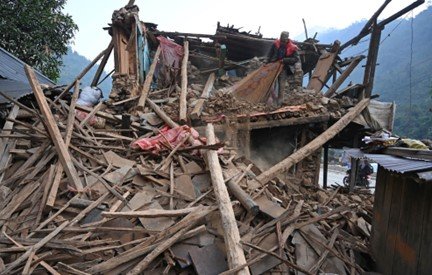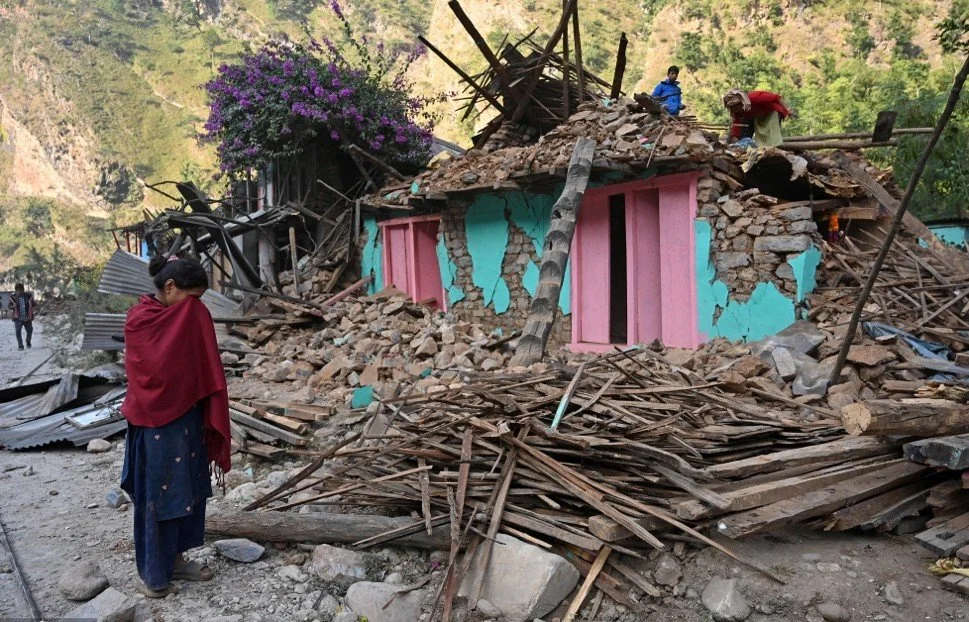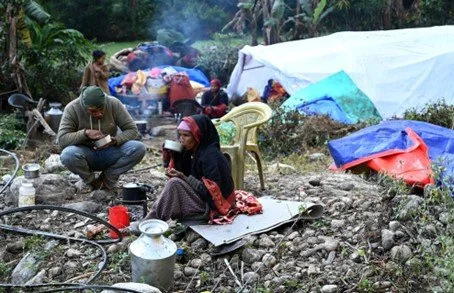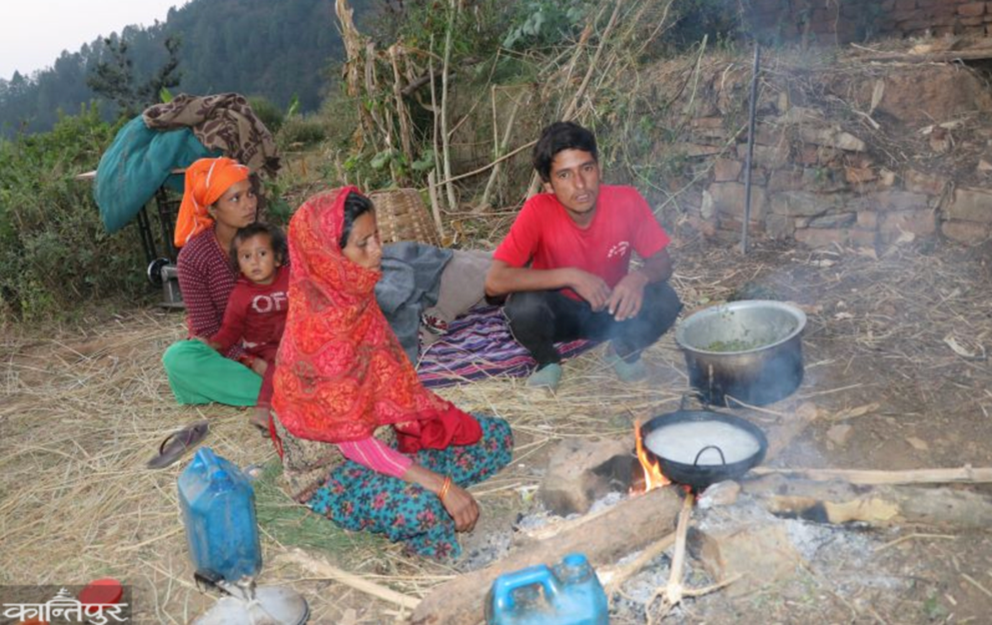Emergency Response for the Earthquake Affected Families in Nepal
1. Situation of the Affected Areas:
A 6.4 magnitude of earthquake struct Jajarkot district affecting Rukum West on 3rd November 2023. Ramidanda of Jajarkot district was the epicentre of the earthquake. It is the largest earthquake after 7.3 magnitude earthquake of 2015 in Nepal. The impact of earthquake is huge. It is estimated that more than 30,000 houses are damaged and destroyed by the earthquake in Jajarkot and Rukum West. It has also impacted Dailekh, Salyan and Achham districts of Karnali Province.
Rukum West and Jajarkot are located as hilly districts of Karnali Province in Nepal. The Karnali Province is one of the seven provinces located in Mid-western part of Nepal. The province has largest number of population with ten districts. All of the districts are hilly areas. The province remained safe during 7.3 magnitude earthquake in 2015. But it has badly affected by 6.4 Magnitude earthquake of 4 November 2023.
The houses of the affected areas are made of stone, wood, timber, mud and slate for roofing. They are very old houses and not earthquake resistant.
Traditional House made of wood, mud and stone (before the earthquake)
Collapsed house due to the earthquake in Jajarkot
It is one of the reasons for the impact of the earthquake on the families. There more than 30,000 families have lost their houses and double of them have damaged houses. More than 150 people killed by it and many are injured and under treatment in the Banke, Surkhet and Chaurjhari Hospitals. More than 14 schools have been damaged by it. According to UN, it is estimated that around 1.3 million people are affected by Earthquake and above 250,000 people needs immediate humanitarian assistance. Falling temperatures in the affected high land is making the situation more complicated. The research and rescue action carried out by Nepal Army is almost at an end. The people are living outside under an open sky, in the cold. Due to falling temperatures, children, elderly persons, pregnant women and mothers with infants are at high risk.
2. Emergency Response for the Earthquake affected families:
Nepal Government has been trying to reach out to the affected families with the help of the United Nations such as WFP and WHO. Despite their efforts, the Government of Nepal has also appealed to civil society organizations to support the affected families. The affected families are in need of temporary shelters for long rung, tarpaulins as an immediate response; and non-food items such as personal hygiene kits, dignity kits, beds and blankets. We are planning to reach out to about 300 households in the affected area. We are planning to provide one relief response package to each of the 300 affected families of Rukum West district. Each kit includes 2 tarpaulins, two mattresses, two bedsheets, two blankets, two hygiene kits and one dignity kit for each family. The estimated cost of them is as follow:
| Items | Estimated Rate | Quantity | Total Amount |
|---|---|---|---|
| Mattress | 600 | 2 | 1200 |
| Bedsheets | 600 | 2 | 1200 |
| Blankets | 2000 | 2 | 4000 |
| Hygiene Kits | 500 | 2 | 1000 |
| Dignity Kit | 1000 | 1 | 1000 |
| Tarpaulins | 2200 | 2 | 4400 |
| Total Per family | 12800 | ||
| USD per family | $97 | ||
| Australian Dollars per family | ~$150 |
People are living in the open, making a temporary shelter of plastic.
3. Emergency Response Management and Mobilization:
We have a team of volunteers in Rukum West and Jajarkot who have been supporting us to collect the information and doing rapid need assessments. In addition, we have direct relationships with the local affected people, local government and youth clubs who are supporting us to respond to the earthquake affected families.
People are cooking outside due to damaged houses & aftershocks
Procurement of the emergency response items will be made at the district and will be transported to the affected families where it will be distributed to them by the help and cooperation of local volunteers, key leaders and the local government. Elderly persons, vulnerable children, pregnant women and mothers with infants will be given priority during the emergency response distribution. The procurement process will follow at least three quotes of goods procurement and furthermore, will be managed following the financial management policy of Livingstone Nepal.
The emergency response to the affected families will be completed within a month from the start of the project. The supporting documents will be documented and reported to the partner as per the policy requirements.
Pr Rabindra Das
To donate to this appeal, please visit the donations page and earmark deposits as “Earthquake Nepal”




